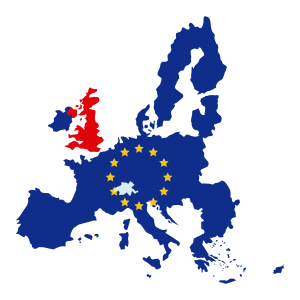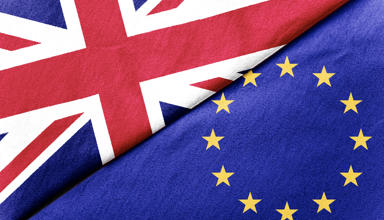The Joint Ministerial Committee (European Negotiations) met on the 16 October in London. The committee last met in January 2017. The Committee discussed progress on the negotiations on the UK’s withdrawal from the EU and discussed the principles underpinning an agreed approach by the UK Government and devolved governments to Common policy Frameworks after the UK leaves the EU.
What is the Joint Ministerial Committee?
 The Joint Ministerial Committee (JMC) is part of the machinery of inter-governmental relations (IGR) in the UK following devolution. It is established by the Memorandum of Understanding between the UK Government and the devolved governments in Wales, Northern Ireland and Scotland. Its purpose is to provide central coordination of the overall relationship between the governments.
The Joint Ministerial Committee (JMC) is part of the machinery of inter-governmental relations (IGR) in the UK following devolution. It is established by the Memorandum of Understanding between the UK Government and the devolved governments in Wales, Northern Ireland and Scotland. Its purpose is to provide central coordination of the overall relationship between the governments.
The terms of reference of the Joint Ministerial Committee are:
- to consider non-devolved matters which impinge on devolved responsibilities, and devolved matters which impinge on non-devolved responsibilities;
- where the UK Government and the devolved administrations so agree, to consider devolved matters if it is beneficial to discuss their respective treatment in the different parts of the United Kingdom;
- to keep the arrangements for liaison between the UK Government and the devolved administrations under review; and
- to consider disputes between the administrations.
The JMC is a consultative not an executive body. The JMC meets in three ministerial formats:
- JMC (Plenary) – an annual meeting between the leaders of each administration, which is chaired by the Prime Minister and usually takes place in June before the Westminster Parliament and devolved legislatures break for their summer recess periods.
- JMC (Europe) – there is a JMC (Europe) meeting, chaired by the Foreign Secretary, prior to each European Council meeting, which are usually held four times a year.
- JMC (Domestic) – this format was introduced in 2008 to enable Ministers from the four administrations to discuss a range of issues and particularly those that straddle both devolved and non-devolved areas. Ministers meet in JMC (Domestic) format around three times a year.
JMC (Plenary) met on 24 October 2016 and agreed to take forward multilateral engagement through a new Joint Ministerial Committee on EU Negotiations to be known as JMC (EN). Its terms of reference are:
Through the JMC(EN) the governments will work collaboratively to:
- discuss each government’s requirements of the future relationship with the EU;
- seek to agree a UK approach to, and objectives for, Article 50 negotiations;
- provide oversight of negotiations with the EU, to ensure, as far as possible, that outcomes agreed by all four governments are secured from these negotiations; and,
- discuss issues stemming from the negotiation process which may impact upon or have consequences for the UK Government, the Scottish Government, the Welsh Government or the Northern Ireland Executive.
- The first JMC (EN) was held under the chairmanship of the Secretary of State for Exiting the European Union. It last met in January 2017. The meeting that was held on 16 October was the first time it had met since the General Election in June 2017.
- In advance of the meeting the Cabinet Secretary for Finance and Local Government, Mark Drakeford AM said it was “an opportunity to re-set the approach and actively involve the devolved administrations in the development of the negotiating position of leaving the EU.” Mr Drakeford had previously sent a joint letter, with the Scottish Minister, Mike Russell, to the Secretary of State for Exiting the EU, setting out a series of practical steps for exiting the EU.
The Communique
- The JMC (EN) on the 16 October was chaired by the First Secretary of State and Minister for the Cabinet Office, Rt Hon Damian Green MP. Also attending from the UK Government were the Secretary of State for Exiting the EU, Rt Hon David Davis MP; the Secretaries of State for Wales and Scotland and the Parliamentary Under Secretary of State for Northern Ireland
- Mark Drakeford AM attended on behalf of the Welsh Government. The Minister for UK Negotiations on Scotland’s Place in Europe, Michael Russell MSP attended from the Scottish Government. In the absence of Ministers from the Northern Ireland Executive, a senior civil servant from the Northern Ireland Civil Service was in attendance.
- A Communique was issued after the meeting in which it said that “Ministers noted the positive progress being made on consideration of common frameworks and agreed the principles that will underpin that work”. A document entitled Common Frameworks: Definitions and Principles is attached to the Communique.
The document states that the United Kingdom and the devolved Governments agree to work together to establish common approaches in some areas that are currently governed by EU law, but that are otherwise within areas of competence of the devolved governments or legislatures. A framework will set out a common UK, or Great Britain, approach and how it will be operated and governed. It goes on:
This may consist of common goals, minimum or maximum standards, harmonisation, limits on action, or mutual recognition, depending on the policy area and the objectives being pursued. Frameworks may be implemented by legislation, by executive action, by memorandums of understanding, or by other means depending on the context in which the framework is intended to operate.
The document then sets out principles that will apply to common frameworks in areas where EU law currently intersects with devolved competence. There will also be close working between the UK Government and the devolved governments on reserved and excepted matters that impact significantly on devolved responsibilities.
Discussions will be either multilateral or bilateral between the UK Government and the devolved administrations. It will be the aim of all parties to agree where there is a need for common frameworks and the content of them.
The full text of the principles agreed can be found attached to the Communique they include principles such as enabling the functioning of the UK internal market and ensuring that the UK can enter into an implement new trade agreements. Common frameworks will also take account of the economic and social linkages between Ireland and Northern Ireland.
The JMC (EN) is expected to meet again before Christmas.
Article by Alys Thomas, National Assembly for Wales Research Service






